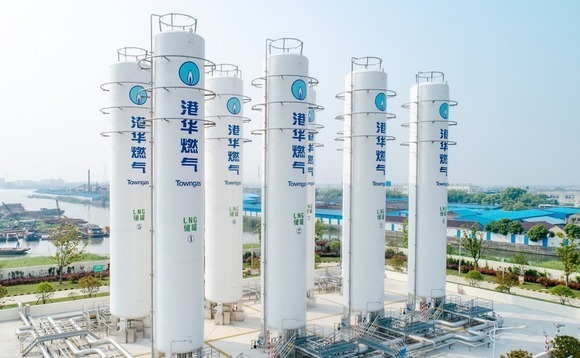
Energy transition case study: Towngas Smart Energy

Towngas Smart Energy wants to offer solar and energy management solutions to its existing piped gas customers across China’s industrial parks. Affinity Equity Partners is supporting the rollout
Affinity Equity Partners was actively looking to invest in sustainability-linked businesses. It scoured renewable energy and the associated value chain from equipment manufacturing through services, as well as circular economy plays around waste management and recyclable materials. There was one key proviso: the firm wanted to partner with an established player in the target vertical.
Meanwhile, Hong Kong utility Towngas was looking to turbocharge a long-gestating mainland China-focused smart energy programme. The idea was to leverage the company's existing piped gas network and offer rooftop solar energy as well, all tied together by a digital platform that would allow customers to track and manage energy usage.
Towngas established a smart energy unit in 2016, but the watershed moments came in 2020 when renewables reached cost parity with traditional energy sources and China unveiled ambitious goals for peak carbon dioxide emissions by 2030 and carbon neutrality by 2060. "That's when momentum really started to build up," observed Kenneth Liu, a partner at Affinity.
The PE firm had previously worked with Henderson – the largest shareholder in Towngas – on an investment in China-based nutritional supplements supplier Aland. This led to the private equity firm being offered a first look at what is now called Towngas Smart Energy (TSE). Last October, it acquired HKD 2.8bn (USD 360m) in new shares and convertible bonds for a 13.3% stake in the company.
TSE posted HKD 17.1bn in revenue last year, with 80% of that coming from piped gas services. Nearly two-thirds of the company's gas output goes to 400,000 industrial and commercial customers, many of them based in industrial parks. These parks are a means of accessing the thousands of Chinese companies looking to add more renewables to their energy mix.
TSE and its parent had 32 zero-carbon smart industrial park projects under negotiation at the end of 2021. There are about 2,600 national and provincial level industrial parks nationwide, which together account for 60% of China's annual carbon emissions, and TSE wants to sign up 200 by 2025.
The company doesn't expect blanket coverage of individual parks – some residents are not interested in renewable energy and others don't meet qualification criteria.
Still, the goal is to achieve 1 gigawatts of installed capacity by the end of this year. At full capacity, this would generate 1bn kilowatt hours of electricity, offset 1m tonnes of carbon dioxide equivalent, and establish TSE as the market leader in distributed solar photovoltaic (PV) for industrial customers in China.
"Distributed solar PV represents the less-travelled path because it is so granular. You accumulate customers one-by-one, and they are usually 2-5 megawatts each, so 1 GW means hundreds of customers. Centralised solar farms can do 1 GW per customer," said Affinity's Liu.
"You need a large ground team to make it work, and TSE has that team. Distributed solar PV also has better return profiles because the average selling price benchmarks the retail electricity price, whereas centralised solar PV, which sells into the grid, benchmarks wholesale electricity prices."
TSE has already achieved several ESG milestones, including becoming the first energy company to issue a sustainability-linked bond in Hong Kong. Meanwhile, the software platform that underpins the holistic energy solution – potentially allowing providing carbon auditing, asset management, and trading as well as energy management capabilities – is still under development.
Affinity is represented on the board and on a strategic committee that meets more frequently and addresses operational issues. The private equity firm is also expected to help TSE explore M&A opportunities – including in software, given there are existing operating systems in Europe and Israel – and develop carbon-related services based on its work with other portfolio companies.
Latest News
Asian GPs slow implementation of ESG policies - survey
Asia-based private equity firms are assigning more dedicated resources to environment, social, and governance (ESG) programmes, but policy changes have slowed in the past 12 months, in part due to concerns raised internally and by LPs, according to a...
Singapore fintech start-up LXA gets $10m seed round
New Enterprise Associates (NEA) has led a USD 10m seed round for Singapore’s LXA, a financial technology start-up launched by a former Asia senior executive at The Blackstone Group.
India's InCred announces $60m round, claims unicorn status
Indian non-bank lender InCred Financial Services said it has received INR 5bn (USD 60m) at a valuation of at least USD 1bn from unnamed investors including “a global private equity fund.”
Insight leads $50m round for Australia's Roller
Insight Partners has led a USD 50m round for Australia’s Roller, a venue management software provider specializing in family fun parks.








